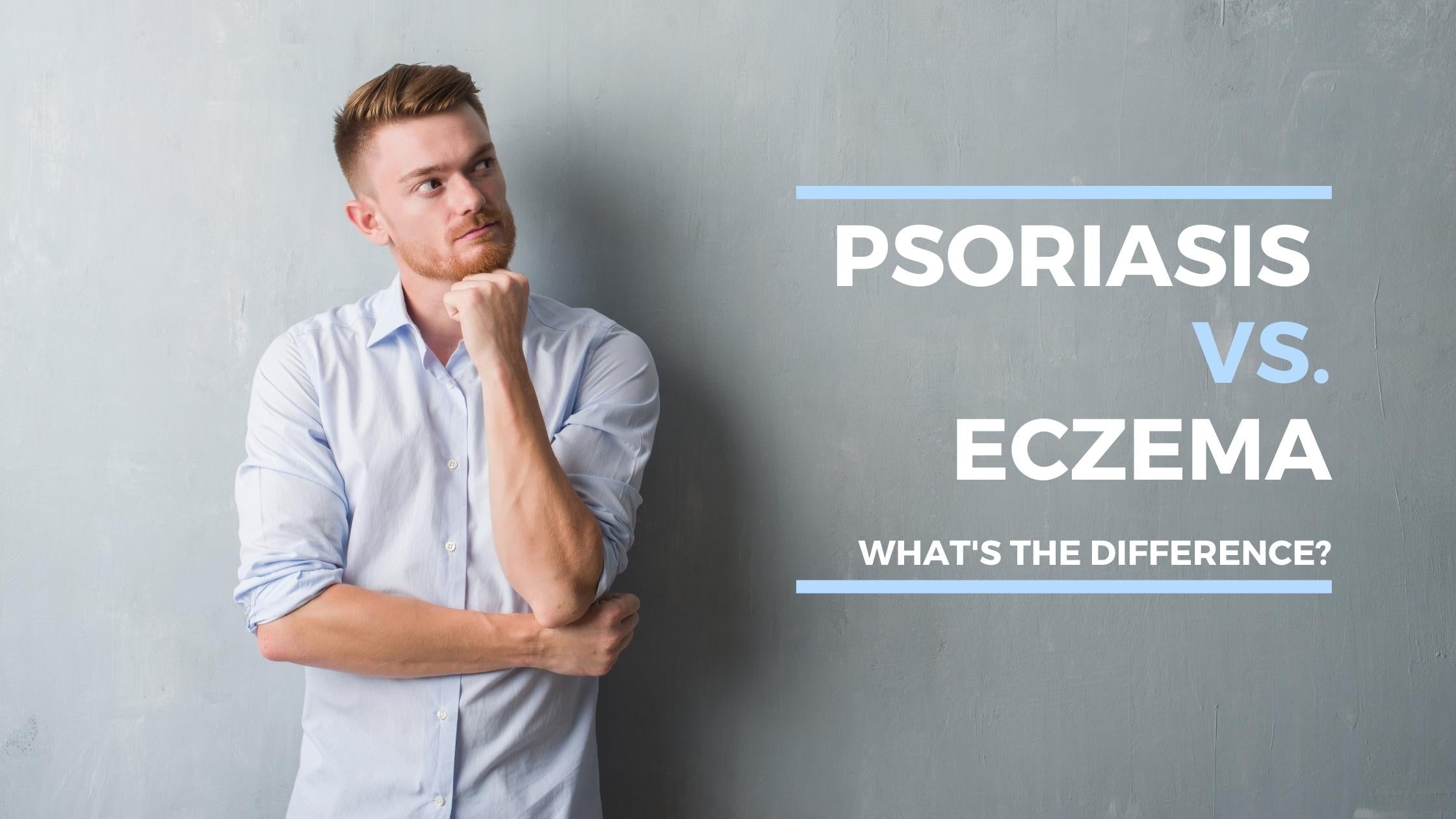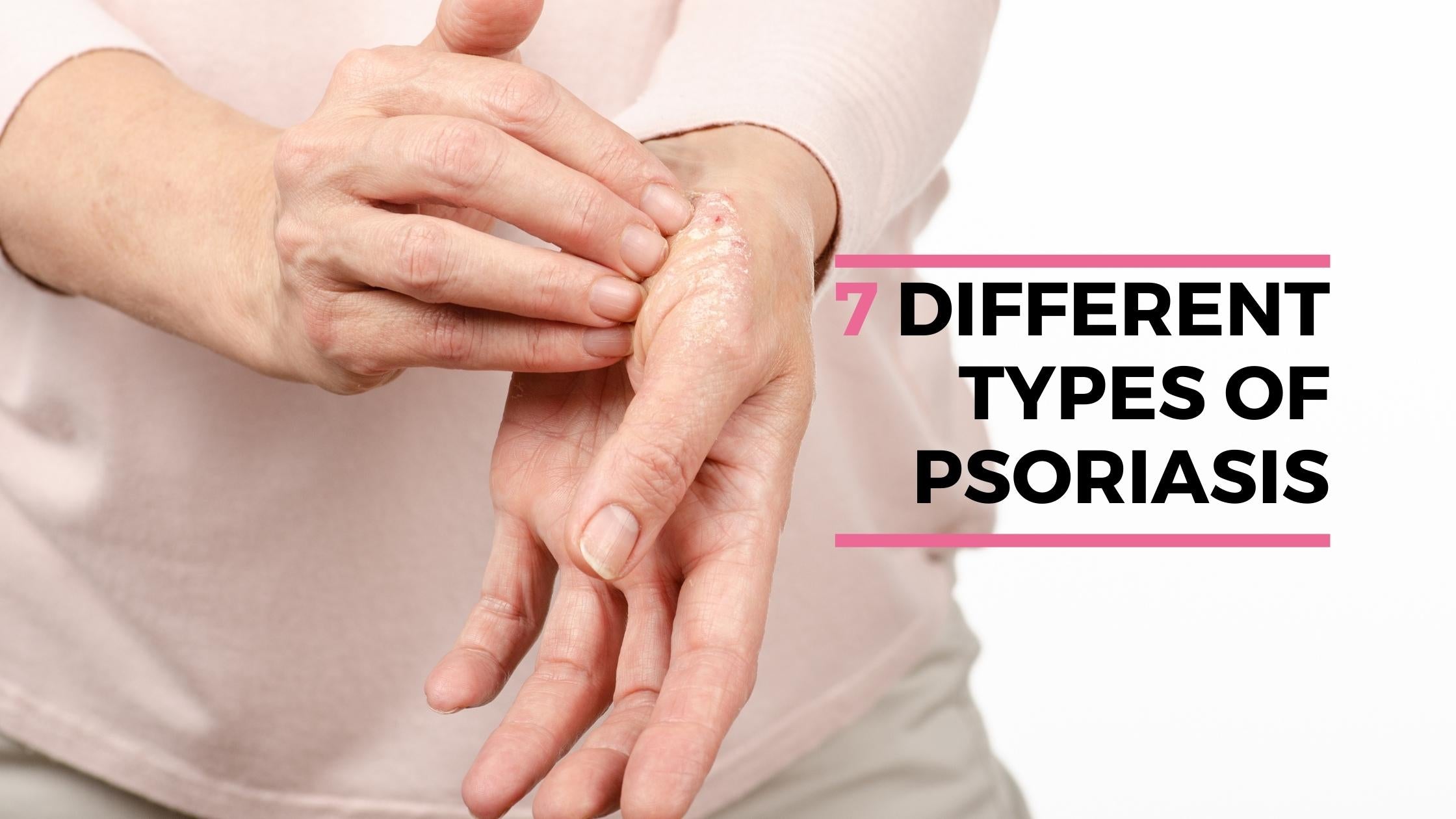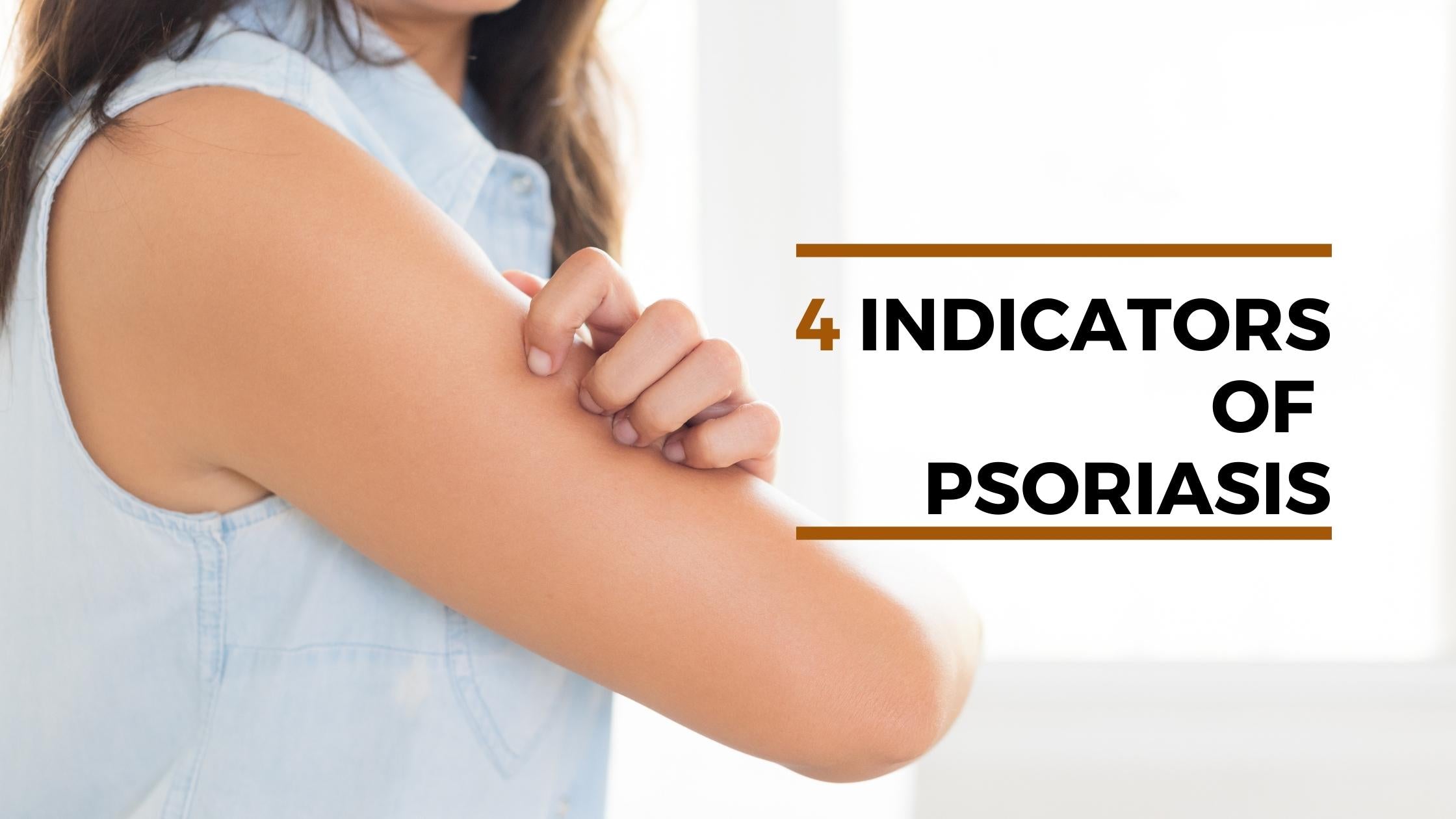
Psoriasis vs. Eczema: What’s the Difference?
If you don’t know much about psoriasis or eczema, you might find yourself using the terms interchangeably. But while psoriasis and eczema may share similarities, they are definitely not one and the same. Read on to discover the differences between psoriasis and eczema today.

What is psoriasis?
We should probably start off with the basics. What is psoriasis and what does it entail?
Psoriasis is an autoimmune disease that causes red, itchy, flaky scales to form, and re-form upon the skin.
There are several types of psoriasis that exist, and the kind of treatment you receive largely depends on the type you have.
Though popular treatments include topicals, such as cream, lotions, and salves, in addition to, or independent of oral medications.
These treatments allow for those with psoriasis to manage their flare-ups (aka periods of time where the body experiences increased symptoms), but there is no official cure for the disease.
For centuries, misconceptions regarding psoriasis circulated mainstream media. Luckily, most of them have been disproven.
One of the most popular beliefs to date, however, is that psoriasis is contagious. And while this may be true of other infectious diseases, it is not true of psoriasis. Psoriasis is classified as an autoimmune disorder, meaning that it stems from your genes - not from kissing, touching, or sharing food or drinks.

So then what is eczema?
Atopic dermatitis, also known as eczema, is a medical condition that (much like psoriasis) causes red, itchy, and sometimes scaly patches to form upon the skin.
Unlike psoriasis, however, eczema has been closely linked to sensitive skin, and common irritants may include certain soaps, detergents, and disinfectants. Eczema may also be triggered by exposure to allergens like dust, pollen, or mold.
Because of this, medical professionals recommend monitoring your exposure to potential triggers. Keeping your skin hydrated with topical treatments may also help reduce itching and irritation.
Similar to psoriasis, myths surrounding eczema and contagiousness have surfaced over the years. Eczema is also not contagious and generally results from irritants that vary from individual to individual.

What are the key differences?
Let’s start with psoriasis.
Previously mentioned, psoriasis is an autoimmune disorder.
This means that the immune system is overproducing skin cells, which results in the thick, rough patches that irritate the skin.
In eczema, these patches typically arise from irritants or air pollutants, making eczema a more surface level condition, whereas psoriasis contains both internal and external components.
Those living with psoriasis also report an increased feeling of skin soreness and burning, whereas in individuals with eczema, itchiness prevails.
How can they be treated?
With psoriasis, topical treatments can help calm the skin, but they’re not often strong enough to battle the condition alone. Because of this, many individuals living with psoriasis use oral steroids and medication in conjunction with topicals, diet, and lifestyle changes.
For eczema sufferers, professionals recommend avoiding known triggers, and using topical treatments such as lotions, creams, or gels to help alleviate itching.

Finding What Works Best for You
In any circumstance, psoriasis and eczema sufferers need, want, and deserve long-lasting relief. And products formulated for mainstream media don’t typically apply to those suffering from either condition.
You may want to start by exploring some options tailored to individuals like you. Take for example, our Psoriasis Honey Skincare Line.
It’s an entire collection of products to help you soothe everything from head to toe (literally).
And if it doesn’t work for you, that’s okay! Our guarantee is complete customer satisfaction, meaning we’ll refund you if you don’t love it.
So what are you waiting for? Go check it out!



Leave a comment
This site is protected by hCaptcha and the hCaptcha Privacy Policy and Terms of Service apply.